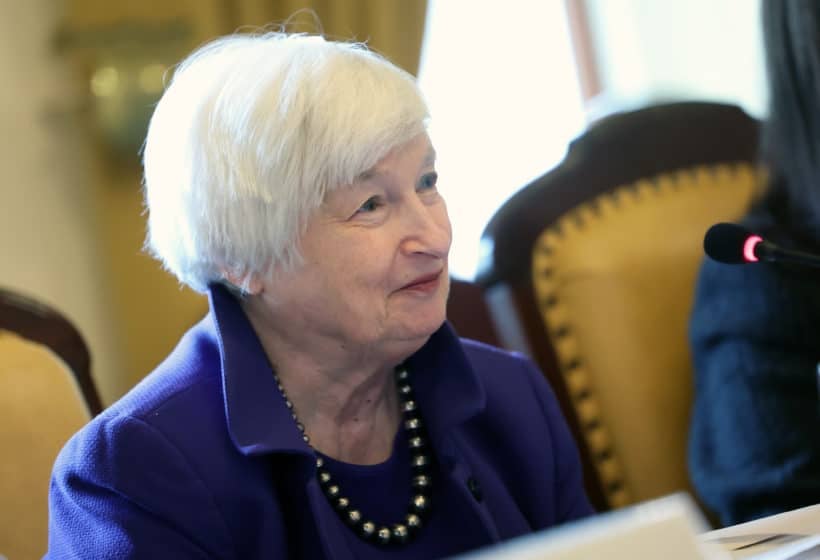
EMALAHLENI, South Africa, Jan 27 (Reuters) – U.S. Treasury Secretary Janet Yellen on Friday visited South Africa’s coal mining region of Mpumalanga, pledging America’s firm support to ensure the country’s transition to renewable energy does not leave its workers behind.
Yellen met with South African officials after touring a U.S.-funded facility where workers are training for jobs in the solar industry and other renewable energy.
She said she would meet later Friday with philanthropists and private sector officials and hoped Washington’s focus on a just transition would underpin their interest in backing the massive project aimed at supporting South Africa’s gradual phasing out of fossil fuels.
The United States, Britain, France, Germany and the European Union backed South Africa’s “Just Energy Transition Partnership,” or JETP, in late 2021 with a combined $8.5 billion, but the total cost could be ten times that high.
“The financial package of $8.5 billion is a substantial down payment,” Yellen said at the U.S.-funded Top of the World Training Center.
“Importantly, it is designed to mobilize additional money from the private sector and philanthropies, and I will meet with representatives from both groups later today,” she said.
Yellen told reporters she had no specific sums in mind for how much donors and the private sector could contribute, but said she believed that focusing on “the just part” would be “extremely important” in leveraging additional funds.
She said U.S. officials also discussed anti-corruption efforts in great detail with South African officials, and were looking to help Pretoria strengthen its rules and enforcement.
“We agree that it’s really critical to address corruption in order to have an effective government that South Africans can have confidence in, and it’s a critical part of the business environment,” she said, when asked if corruption concerns could dampen interest by donors and the private sector.
South Africa’s plan calls for job retraining and reskilling, cash payments to support displaced workers, redevelopment of former coal mines and coal power plants as clean energy production sites and other productive uses, as well as investment in roads, rail, ports, and digital infrastructure.
“The United States’ commitment to the energy transition being ‘just’ is firm. That is why President Biden made an additional commitment to President Ramaphosa of $45 million in grant funding to support South Africa’s efforts,” Yellen said.
Owing to its reliance on coal for electricity, South Africa is the world’s 14th biggest carbon emitter, three places ahead of Britain, an economy seven and a half times the size, according to data from the Global Carbon Atlas.
But President Cyril Ramaphosa’s plan to transition South Africa away from coal and towards renewable energy has divided the governing African National Congress (ANC). Union leaders allied to the party fear massive job losses in the coal belt that they doubt the renewables business will be able to plug.
The Treasury secretary had a “frank” exchange of views with both Ramaphosa and Energy Minister Gwede Mantashe – a vocal defender of keeping South Africa’s coal mines and power stations open – about the partnership, the U.S. ambassador to South Africa, Reuben Brigety, told reporters on Thursday.
They agreed on the need to transition to a low-carbon-emission economy, but raised questions about how they could get there and on what timetable, he said.
Yellen is wrapping up a three-country visit to Africa, with stops in Senegal and Zambia, that is aimed at deepening U.S. economic ties with the continent and countering China’s long dominance of trade and lending with many African nations.
(Reporting by Andrea Shalal; Editing by Tim Cocks, Toby Chopra and Mark Potter)